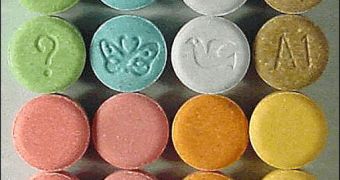A new investigation has determined that people who use a lot of recreational drugs, including ecstasy and marijuana, tend to experience memory lapses more often than individuals who do not fiddle with these substances. The study, which has been conducted in the United Kingdom, has also connected these memory deficits with cocaine use for the first time, the team behind the research says. Details of the work appear in the latest issue of the scientific Journal of Psychopharmacology, which is published by SAGE, AlphaGalileo reports.
Researchers from the University of Central Lancashire (UCL) and the Liverpool John Moores University (LJMU) have been involved in the investigation. They were curious to learn more about the potential connections that existed between consuming recreational drugs and experiencing an increased number of memory lapses. These were defined as instances in which people failed to remember to remember, or did not remember to perform a particular action they were supposed to do at a given time.
UCL scientists Florentia Hadjiefthyvoulou, John Fisk, and Nikola Bridges collaborated closely with LJMU colleague Catharine Montgomery on the body of work. Previous investigations had revealed that drugs such as ecstasy played a significant role in impairing a large number of cognitive abilities, such as speaking and remembering spatial cues. The current research built up on this foundation, but took everything one step further. The science group looked at two types of remembering, the one based on temporal cues, and the one that depended on conditioning by an event.
The distinction between the two is very important, the specialists say. These types of remembering depend on different kinds of brain processes. The investigation was conducted on a test group of 42 ecstasy users, of which 28 were females, and a control group of 31 individuals that did not take drugs, of which five were males. At the beginning of the study, they received questionnaires regarding the drugs they consumed, including tobacco, cannabis and alcohol. The same paper then questioned each of the participants about everyday memories, cognitive failures and prospective and retrospective memory.
The subjects were asked to take a memory test, and then, several weeks later, they were asked to return for a follow-up. Those in the study group fared considerably worse than the others, even after researchers accounted for the influence of alcohol and tobacco. Memory deficits were transparent from the statistical connection. Additionally, it was demonstrated that even the recreational-drug users themselves rated their mental lapse moments as happening more often than those in the control group.

 14 DAY TRIAL //
14 DAY TRIAL //